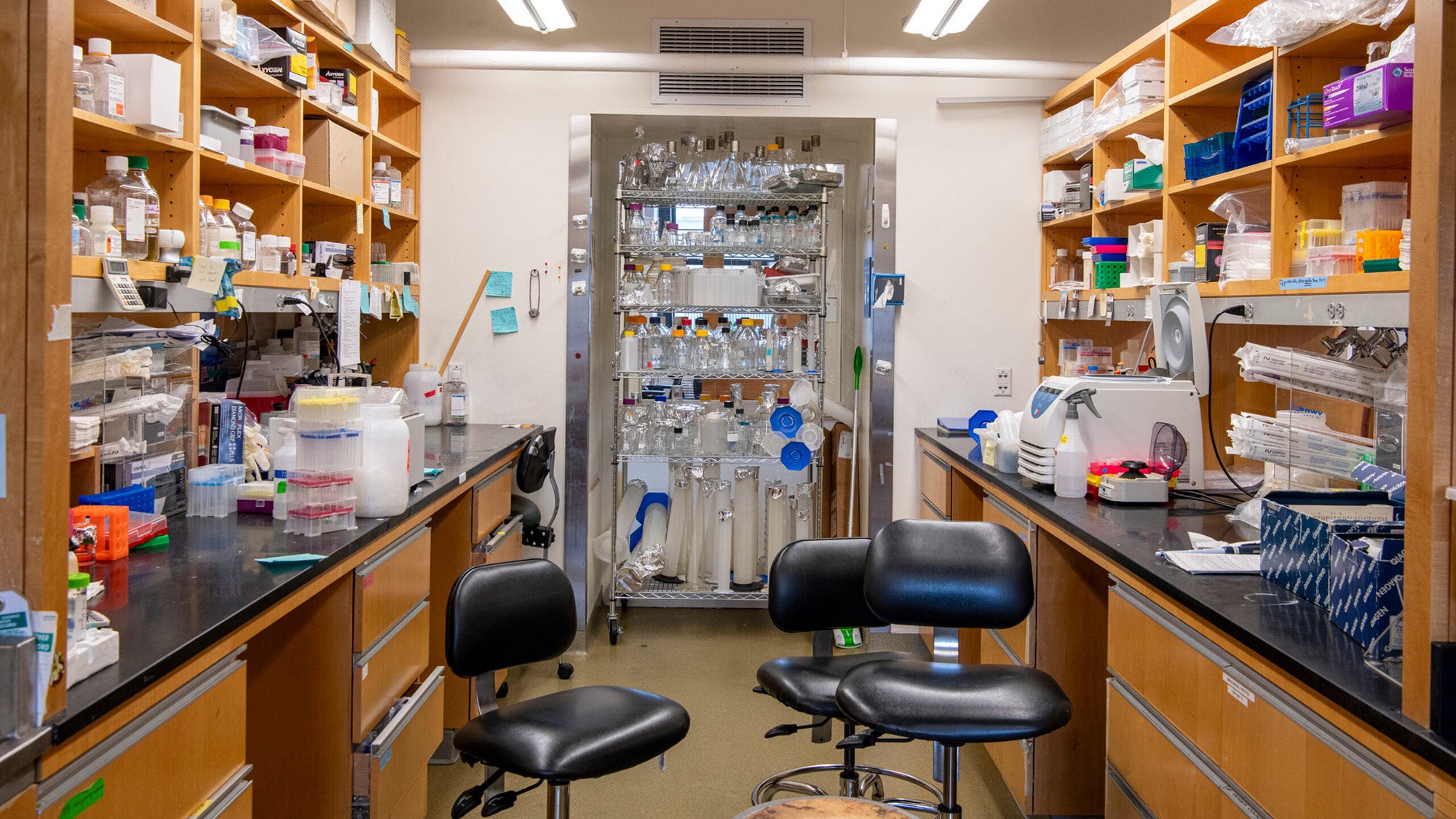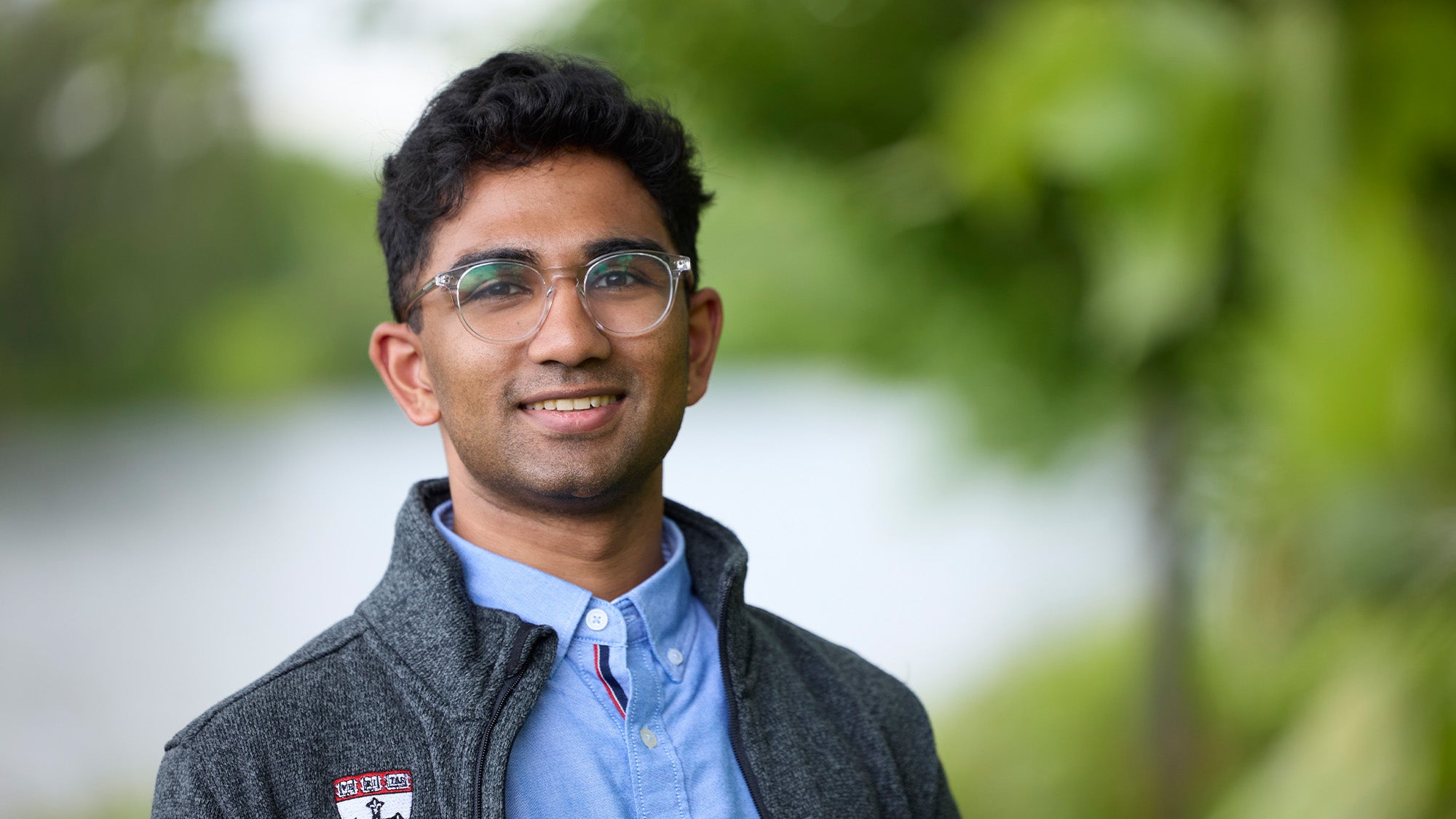Harvard Chan researchers detail pain of federal funding cuts

In the wake of the Trump administration’s sweeping terminations of federally funded grants at Harvard University, researchers at Harvard T.H. Chan School of Public Health are lamenting the loss of lifesaving research across multiple disciplines.
Nine faculty members spoke about the devastation in a May 28 Harvard Crimson article.
Shahin Lockman, associate professor in the Department of Immunology and Infectious Diseases, discussed her three decades of work with Roger Shapiro, professor of immunology and infectious diseases, on the Botswana Harvard Health Partnership, a leading center for HIV research, treatment, and public health training in southern Africa. The grant terminations could lead to interruptions in 11 clinical trials, the loss of more than 150 jobs in Botswana, and the end of training for more than 20 scientists. The Partnership has already cut more than 240 jobs, Shapiro said.
Alberto Ascherio, professor of epidemiology and nutrition, works to discover the causes of neurodegenerative diseases including multiple sclerosis, Parkinson’s, and amyotrophic lateral sclerosis. He said that his research relies on “irreplaceable” blood samples for therapeutic interventions, costing “millions of dollars in taxpayer money,” that will now have to be frozen. “We had to stop all work, and we just hope to have sufficient funding to keep our freezers running to preserve the samples for better times,” he told the Crimson.
Alternative sources of research funding are either insufficient or nonexistent, some faculty members said. Christoph Lange, professor of biostatistics, who has spent 25 years developing software to diagnose a range of chronic illnesses, noted that private foundations typically focus on just one type of disease—not projects like his.
The School is launching a new strategy to bring in private sector support, but industry is unlikely to replace the government’s role in funding the development and evaluation of programs meant to improve health outcomes for all, said Rita Hamad, associate professor of social and behavioral sciences, who focuses on health equity research.
Hamad added that funding cuts at Harvard are also affecting research partnerships at other institutions. She said she had to inform collaborators at three different U.S. institutions that their joint research was being defunded. “For some of them, we’re actually in the last year or two, and we are getting close to the point of finalizing our results and publishing the papers, and it’s just very devastating for everybody,” she said.
For Shoba Ramanadhan, associate professor of social and behavioral sciences, the shutdown of a multi-year project on the health effects of heat stress had global ramifications, involving collaborators in Madagascar and South Africa. “To abruptly shut down planned work in Year 1 of a 5-year grant (as we have just had to do) damages not only our relationships with partners, but the stability of health care and public health organizations that were relying on these funds to continue their vital work,” she said.
Sarah Fortune, John LaPorte Given Professor of Immunology and Infectious Diseases and chair of the Department of Immunology and Infectious Diseases—who received a stop-work order in April on her $60 million tuberculosis research contract—noted that some of her collaborators “are sadly even ahead of us in terms of having to lay people off.”
Physician education and training programs—such as Harvard Chan’s Occupational and Environmental Medicine Residency, which trains doctors to prevent workplace injuries and chronic occupational diseases—have also lost funding, and faculty said the scientific pipeline will suffer as well. Justin Yang, adjunct assistant professor of environmental health, who directs the residency, said, “Without new funding, we will be unable to continue training doctors in this essential field.”
Read the Harvard Crimson article: After a Semester of Catastrophic Federal Cuts, Researchers at Harvard Are in a ‘Survival State’


